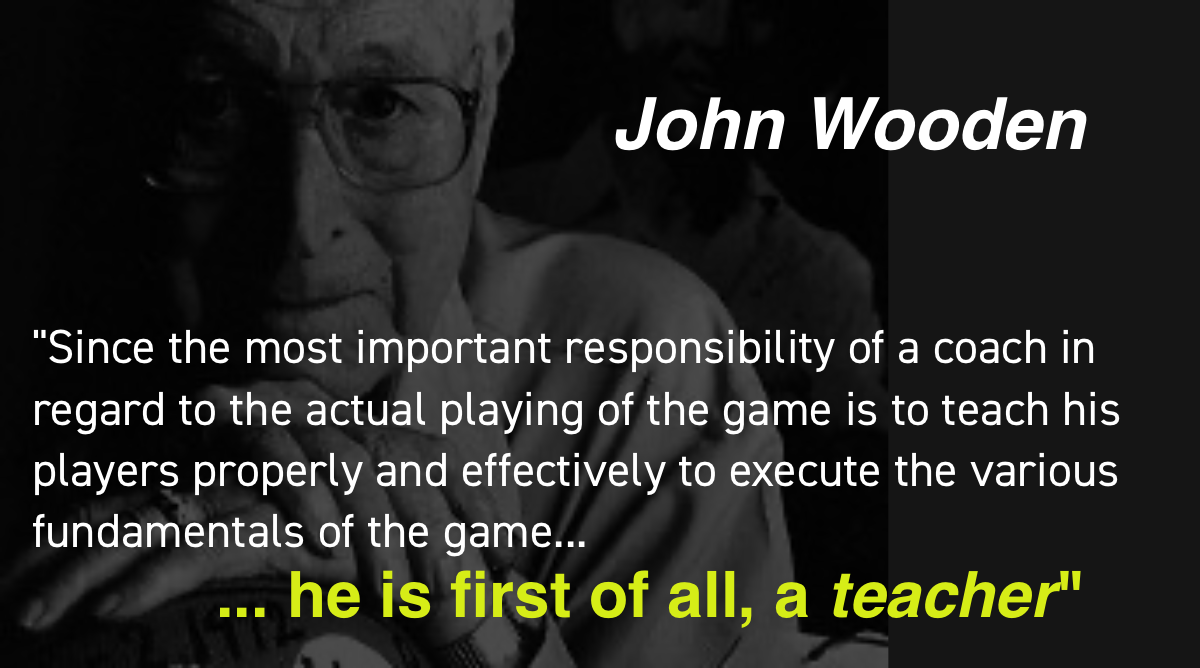Choosing a Volleyball Club Tip #2 – Coach’s COACHING Credentials


Choosing a volleyball club: Tip #2
A coach's COACHING credentials
“Since the most important responsibility of a coach in regard to the actual playing of the game is to teach his players properly and effectively to execute the various fundamentals of the game… he is first of all, a teacher.”
– John Wooden
It’s so important to remember that a coach must first and foremost be… a teacher.
At the end of the day, when you’re looking for the best place for your child to play, it’s easy to go “oooh” and “ahh” over a former hotshot who has excellent playing credentials, a great college playing career, maybe even went pro after, but let me ask you…
What does that do for you? .. And for your son/daugher?
Playing and coaching require TWO DIFFERENT SKILL SETS.
Here are some things I highly recommend you look for when determining a coach’s credentials:
- A proven track record of athlete development — I’m a big fan of stats, myself. If you take a look at my own teams’ stats from the beginning to the end of a season, you will see a verifiable difference in their level of play. That is HUGE. That’s what you’re paying a coach for.
- Testimonials from athletes and parents. If you ask athletes and parents who have played for me, 9 out of 10 would be overwhelmingly positive. Why only 9/10? I’m being transparent with you… If you refer back to my last blog post about matching learning style to teaching style, I have not perfectly aligned with every athlete I’ve coached. That’s just part of the job… But I do have an incredibly positive impact on the large majority of my athletes.
- Do they let parents in the gym? — A full post on this to come in Part 5, but in a nutshell, is the coach confident enough in his/her ability to allow you, the parent, in the gym to see how they are training your son/daughter?
- Are they trying to hide their inexperience in coaching behind a wall of “look what I did as a player”? — As a coach, I consider my playing accomplishments separate from my coaching accomplishments. As a coach, I have won 14+ tournaments, achieved runner up in a handful of others, have data proving player development at the team and individual level, and more. THAT is what is important to you and your son/daughter… what I can do to make my athletes better volleyball players.
- Longevity — I saved this double-edged sword for last. Longevity in coaching is important, but it’s not the end-all-be-all. Personally, I have been coaching for 15 years now. There are some great coaches at 5 years. There are other great coaches at 30 years. While I would be wary of a 1st or 2nd year coach in a head coach position (I was an assistant myself for 3 years before taking on my own team), I would also be cautious when considering coaches beyond 20-30 years experience too. Why? Because sometimes they hit a point where they stop learning. You need a coach who is always at the cutting edge of volleyball development. The game evolves (when I was on the court, the Libero wasn’t even a thing at the high school level yet), and the science behind exercise and training constantly changes too. So while I’d definitely be impressed by someone 20+ years into coaching, I would also make sure they’re they type that are still growing and learning.
At the end of the day, you want the best coach that is going to help athletes grow on the court, and possibly in ways off the court too. Ultimately, what I’m hoping you might take from this blog post is to remember the elements of coaching that are not just related to the game itself… but to TEACHING… to the skills that can only be developed through actual coaching experience.
– Coach Adam